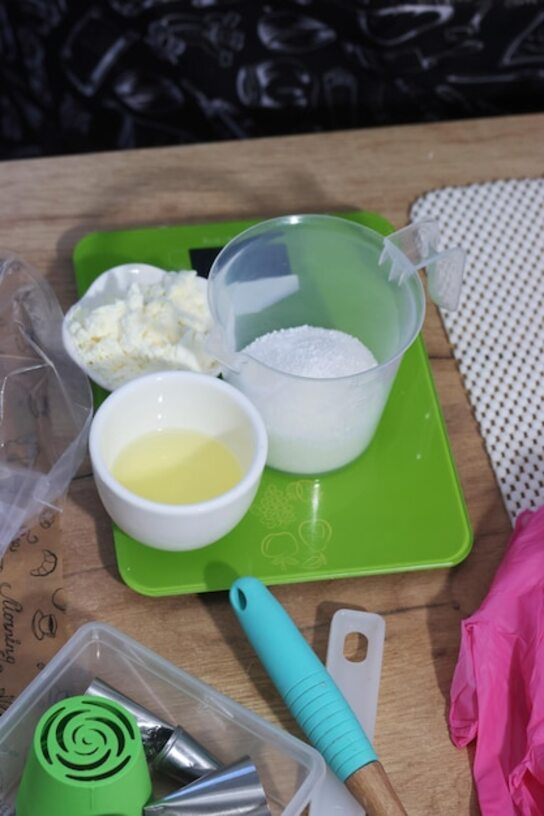Reinvent cleaning with ancestral and effective methods.

Reinvent cleaning with ancestral and effective methods. In a world where chemical products dominate our routines, it's time to rediscover the cleaning techniques that have endured over time. From the use of vinegar and baking soda to natural herbs, these methods are not only environmentally friendly but also incredibly effective. Join me on this journey towards healthier and more effective cleaning that will transform your home into a fresh and welcoming space.
The wisdom of vinegar: a multi-purpose cleaner
The wisdom of vinegar dates back centuries, being used in various cultures not only as a condiment but also as a powerful cleaning agent. This versatile liquid has antibacterial and disinfecting properties that make it an indispensable ally for the home. By mixing vinegar with water, you can create a multipurpose cleaner that removes stains, deodorizes spaces, and cleans surfaces without leaving toxic residues. From kitchen countertops to bathrooms, its effectiveness lies in its ability to dissolve grease and limescale, making the task of cleaning a much simpler and quicker experience.
In addition to being effective, vinegar is an economical and eco-friendly option that helps reduce our environmental footprint. Unlike commercial products filled with harsh chemicals, vinegar is biodegradable and safe to use even in homes with pets or small children. Incorporating this ancient cleaner into your routine may inspire you to explore other natural cleaning methods, connecting you with practices that have proven their worth over time. Thus, by choosing vinegar as your main ally in home cleaning, you will not only take care of your living space but also contribute to the well-being of the planet.
2. Baking soda: the hidden ally for eliminating odors
Baking soda is undoubtedly one of the most versatile and powerful allies in the fight against unwanted odors in the home. This natural mineral not only acts as an excellent odor absorber, but it also neutralizes acids, making it an ideal option for combating those persistent aromas that sometimes seem unbreakable. From the refrigerator to carpets, baking soda can be sprinkled or used in liquid solutions to eliminate any trace of bad smell, leaving a fresh and clean air that instantly transforms any space.
In addition to its ability to eliminate odors, baking soda is extremely easy to use and poses no risks to health or the environment. Simply placing an open container of baking soda in strategic locations such as closets, bathrooms, or areas where unpleasant odors accumulate can work wonders. It can also be mixed with water and a few splashes of vinegar to create an effective cleaning paste that not only deodorizes but also helps clean tricky surfaces. By incorporating this simple ingredient into your cleaning routine, you will not only be improving the aroma of your home but also adopting more sustainable and mindful practices.
3. Aromatic herbs: natural cleaning with fragrance
Herbs not only add flavor and fragrance to our dishes, but they have also been used for centuries as natural cleaning agents. Plants like rosemary, lavender, and eucalyptus possess antibacterial and antifungal properties that make them perfect allies for keeping a home clean and fresh. By preparing infusions or essential oils from these herbs, you can create effective solutions to disinfect surfaces and eliminate unwanted odors, all while leaving a pleasant aroma that transforms any space.
In addition to their effectiveness, the use of aromatic herbs in cleaning is a sustainable practice that minimizes environmental impact. Instead of resorting to harsh chemicals, you can grow your own plants at home, ensuring a constant supply that is free from toxicity. By doing so, you not only contribute to the health of the planet but also enjoy the additional benefits they bring to the environment: a more relaxing and welcoming atmosphere. Reinventing cleaning with these ancestral techniques means embracing a more conscious and healthy way of caring for your home.
4. Black soap: history and benefits in modern cleaning
Black soap, originating from Africa and with a rich history dating back centuries, has been an indispensable ally in home cleaning. This product, traditionally made from vegetable oils and plant ashes, stands out for its ability to disinfect and remove dirt without damaging surfaces. Over time, various cultures have adopted this soap in their daily routines due to its antibacterial and softening properties. Its versatility makes it an ideal product for both home cleaning and personal care, demonstrating that ancestral methods can provide effective solutions today.
The benefits of black soap are not limited to its effectiveness; it is also an eco-friendly option that respects the environment. Being free of harsh chemicals, it is safe for people with sensitive skin and helps reduce environmental pollution. In the realm of modern cleaning, this soap can be used to wash clothes, clean surfaces, and even as a natural exfoliant in the bath. By incorporating black soap into your cleaning routine, you will not only be opting for a time-tested ancestral method but also taking a step towards more sustainable and healthy practices in your home.
5. Lemon: natural disinfectant and bleaching power
Lemon is one of the most versatile allies in home cleaning, thanks to its natural disinfectant and bleaching properties. Its high acidity not only helps eliminate bacteria and germs but also acts as an effective bleach for surfaces and fabrics. By applying lemon juice to areas prone to dirt buildup, such as the kitchen or bathroom, you can achieve a deep clean without resorting to harsh chemicals. Additionally, the fresh aroma of lemon leaves a pleasant and revitalizing environment.
A simple trick to make the most of the power of lemon is to combine its juice with baking soda, creating a paste that can be applied to tough stains on faucets, tiles, and even white clothing. This mixture not only removes stubborn stains but also neutralizes unpleasant odors. Incorporating the use of lemon into your cleaning routine is not only effective but also represents a sustainable option that contributes to a healthier and more environmentally friendly home.
6. Essential oils: aroma and antibacterial properties
Essential oils are a powerful tool in home cleaning, not only for their pleasant aroma but also for their antibacterial and antimicrobial properties. These natural extracts, obtained from plants, flowers, and spices, have been used for centuries in various cultures to purify the environment and disinfect surfaces. Incorporating essential oils like tea tree, lavender, or eucalyptus into your cleaning routine can provide a healthier and more sustainable approach. By replacing harsh chemicals with these natural scents, you will not only improve the air quality in your home but also create a more relaxing and welcoming environment.
In addition to their aromatic benefits, essential oils have the ability to combat bacteria and germs that can accumulate in various areas of the home. For example, oregano oil is known for its potent antimicrobial action, while lemon oil can help disinfect surfaces due to its natural acidity. To make the most of these properties, you can add a few drops of essential oil to your homemade cleaning solutions or even use them with a diffuser to maintain a fresh and contaminant-free environment. In this way, you will not only be reinventing your cleaning method with effective ancestral practices but also contributing to a healthier environment for you and your family.
7. Traditional cleaning techniques from different cultures
Traditional cleaning techniques vary significantly between cultures, each contributing its own wisdom and local resources. For example, in Japanese culture, the use of "shoyu," or soy sauce, has been employed not only as a condiment but also as a cleaning agent. This natural substance is used to remove tough stains on wooden surfaces without damaging the finish, demonstrating that everyday elements can have multiple functions. Likewise, indigenous communities in South America have used herbs like eucalyptus and mint to disinfect spaces, thanks to their antimicrobial and aromatic properties. These ancestral practices teach us that cleaning can be effective and beneficial for our well-being.
In Mediterranean culture, it is common to use citrus fruits like lemon and orange due to their powerful antibacterial and deodorizing properties. Lemon juice is frequently mixed with hot water to clean surfaces and utensils in the kitchen, leaving a fresh and pleasant aroma. Similarly, in some African regions, wood ash is used as a natural abrasive for scrubbing pots and pans. These techniques are not only effective but also reflect a deep connection with the natural resources available in each environment. By integrating these traditions into our daily routine, we not only optimize our cleaning methods but also honor the cultural practices that have stood the test of time.
8. Economic advantages of ancestral methods
The economic advantages of ancestral methods are undeniable, especially in a context where the cost of living continues to rise. By opting for solutions like vinegar, baking soda, or lemon, you are using ingredients that are not only accessible but also multifunctional. For example, baking soda can be used to deodorize, clean surfaces, and even unclog drains, which eliminates the need to buy multiple specific products that tend to be more expensive. Thus, by incorporating these natural elements into your cleaning routine, you can significantly reduce your monthly expenses on chemical products.
In addition to direct savings when purchasing products, ancestral methods contribute to the durability of your items and surfaces. Many commercial cleaners contain abrasive or corrosive substances that can deteriorate furniture and appliances over time. In contrast, using natural solutions protects your belongings and extends their lifespan. This means less spending on repairs or replacements in the long run. At the end of the day, choosing ancestral methods is not only a smart economic decision but also an investment in the sustainable care of your home.
9. How to make your own natural cleaners at home
Making your own natural cleaners at home is an excellent way to reduce exposure to harmful chemicals while saving money. Among the most common ingredients are vinegar, baking soda, lemon, and essential oils. For example, a simple mixture of equal parts water and vinegar creates a powerful multipurpose cleaner that can disinfect surfaces, eliminate odors, and leave a natural shine on your furniture. Additionally, by adding a few drops of essential oil like lavender or tea tree, you will not only enhance its effectiveness but also enjoy a fresh and pleasant scent in your home.
Another popular option is the use of baking soda, especially effective for removing tough stains and absorbing odors. You can make a paste with baking soda and water to clean sinks or kitchen surfaces; its gritty texture helps to exfoliate without scratching. For those looking for more specific alternatives, mixing lemon juice with salt creates a natural cleaner ideal for removing stains on wooden boards or even whitening clothes. By incorporating these ancestral methods into your daily routine, you will not only contribute to a healthier environment but also revive traditions that have proven effective over time.
10. Maintaining sustainability in your cleaning habits
Maintaining sustainability in your cleaning habits is a crucial step towards a healthier home and a cleaner planet. By opting for ancestral methods, such as using natural and non-toxic ingredients, you can significantly reduce the amount of waste you generate and the chemicals that pollute water and air. For example, replacing commercial cleaners with vinegar or baking soda-based solutions not only saves money but also minimizes your ecological footprint. These ingredients are biodegradable and safe for the environment, meaning you can clean your home without contributing to its deterioration.
In addition to choosing natural products, adopting responsible habits during cleaning also plays an important role in sustainability. Using reusable cloths instead of disposable towels is a simple yet effective way to reduce waste. You can also consider making your own cleaning products using simple recipes that require few ingredients. This way, you not only keep your home clean and free of toxins but also promote a culture of care for the environment. By reinvesting in sustainable practices, you are contributing to a greener future while enjoying the well-being that comes from living in a harmonious and natural space.



